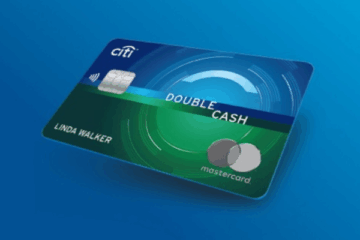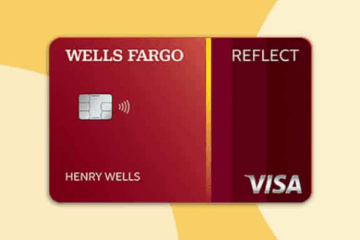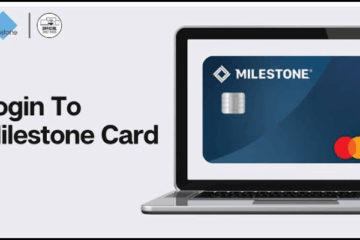How to Protect Yourself Financially Without Investing
In a world where financial advice often begins and ends with “you need to invest,” many Americans find themselves wondering: Is there a way to build financial security without putting money into the stock market or risky ventures? The answer is yes.
Advertising
Whether due to a low risk tolerance, unstable income, or simply a desire to avoid complex financial products, protecting your financial future doesn’t have to involve investing. In fact, a strong foundation in financial protection comes from everyday habits, strategic planning, and smart decisions that reduce risk, increase stability, and preserve your wealth.
Advertising
In this article, we’ll explore practical, actionable ways you can safeguard your finances without investing, with a focus on building a safety net, managing debt, increasing financial resilience, and protecting your assets — all without needing to understand market trends or memorize stock tickers.
1. Build and Maintain an Emergency Fund
One of the simplest and most effective ways to protect yourself financially is by building an emergency fund. This is a separate savings account specifically designed to cover unexpected expenses such as medical bills, car repairs, or job loss.
Advertising

Why It Matters:
Life is unpredictable. Without a financial cushion, even a minor emergency can lead to debt, late payments, or financial instability.
How to Do It:
Aim for 3 to 6 months’ worth of living expenses.
Keep the fund in a high-yield savings account with easy access, but not tied to your daily spending.
Start small: even saving $25–$50 a week consistently builds momentum.
An emergency fund isn’t an investment — it’s insurance against chaos, and it gives you breathing room when life throws a curveball.
2. Focus on Eliminating High-Interest Debt
Paying off high-interest debt, such as credit cards or payday loans, is one of the smartest financial moves you can make — and it doesn’t require any investment account.
Why It Matters:
High-interest debt grows quickly and silently eats away at your financial health. For example, a $5,000 balance on a credit card with 24% APR can cost you thousands in interest over a few years.
What to Do:
Use the avalanche method: focus on paying off debts with the highest interest rates first.
Or the snowball method: start with the smallest balance to build momentum.
Negotiate lower interest rates or consolidate loans when possible.
Getting out of debt frees up your income, reduces stress, and significantly improves your long-term financial security.
3. Create and Stick to a Budget
Budgeting is not just about tracking expenses — it’s about controlling your money instead of letting your money control you. A solid budget helps you plan for needs, avoid overspending, and set realistic financial goals.
How to Start:
Track all your income and expenses for one month.
Identify spending leaks (subscriptions, impulse buys, unused services).
Allocate funds using the 50/30/20 rule: 50% for needs, 30% for wants, and 20% for savings or debt payoff.
Many Americans underestimate how much they spend on small things — daily coffees, streaming services, or eating out. Budgeting helps you protect your income and prepare for future needs without taking on more risk.
4. Build Multiple Income Streams
You don’t have to invest in stocks or crypto to diversify your income. Creating side hustles or secondary income sources is a powerful form of financial protection.
Ideas Include:
Freelancing (writing, graphic design, web development)
Driving for rideshare services
Selling on platforms like Etsy or eBay
Teaching online classes or tutoring
Renting out a room or storage space
Multiple income streams give you more flexibility and reduce your reliance on a single paycheck — which is especially important in uncertain economic times.
5. Get the Right Insurance
Insurance might seem like an expense, but it’s actually one of the most effective financial protection tools available.
Types of Insurance You May Need:
Health Insurance: Prevents massive out-of-pocket costs in case of illness or injury.
Disability Insurance: Protects your income if you’re unable to work.
Renter’s or Homeowners Insurance: Covers your belongings in case of fire, theft, or damage.
Auto Insurance: Legally required, but also critical for protecting your vehicle and finances.
Life Insurance: If you have dependents, term life insurance ensures they’re financially stable in case something happens to you.
Review your coverage annually and adjust it to match your life stage and needs. The goal isn’t to pay more — it’s to be properly covered.
6. Avoid Lifestyle Inflation

One of the biggest threats to long-term financial stability isn’t lack of income — it’s spending more as you earn more. This is called lifestyle inflation.
Example:
You get a $5,000 raise. Instead of using it to pay off debt or increase savings, you upgrade your car, move into a pricier apartment, and subscribe to more services. The result? No net financial improvement.
How to Avoid It:
Commit to saving a portion of every raise or bonus.
Keep fixed costs low, even when income rises.
Focus on long-term goals rather than short-term indulgences.
Financial protection comes from consistency, not just earning more.
7. Automate Your Finances
Automation helps you stay consistent and avoid the temptation to spend what should be saved or paid.
What to Automate:
Monthly bill payments (utilities, credit cards, loans)
Savings transfers to your emergency fund
Contributions to retirement accounts (if applicable)
Insurance premiums
By automating these processes, you eliminate human error, reduce late fees, and build solid habits without relying on willpower.
8. Educate Yourself Financially
Knowledge is a shield. The more you understand personal finance, the easier it is to make smart decisions and avoid costly mistakes.
Free Resources:
Podcasts like “The Ramsey Show” or “Afford Anything”
Websites like NerdWallet or The Balance
Public library books on budgeting and debt
YouTube channels with honest financial advice
Even if you never invest, understanding how money works puts you ahead of the curve. Education is free, but the value is priceless.
9. Practice Frugal Living — Without Sacrificing Quality of Life
Being frugal doesn’t mean being cheap. It means making deliberate decisions that align with your goals.
Frugal Tips:
Cook at home instead of eating out.
Buy second-hand or refurbished products.
Use cash-back apps and coupons.
Share subscriptions or services.
When done right, frugal living can protect your finances without making life feel limited.
10. Plan for the Unexpected
Not every financial threat is obvious. Identity theft, fraud, sudden job loss, and even natural disasters can wreck your finances if you’re not prepared.
How to Prepare:
Use strong passwords and credit monitoring services.
Have updated copies of your documents and records.
Consider a fire-proof safe for critical documents.
Build a plan for unemployment — including side gigs or retraining.
A written financial contingency plan helps you stay calm and act quickly in moments of crisis





